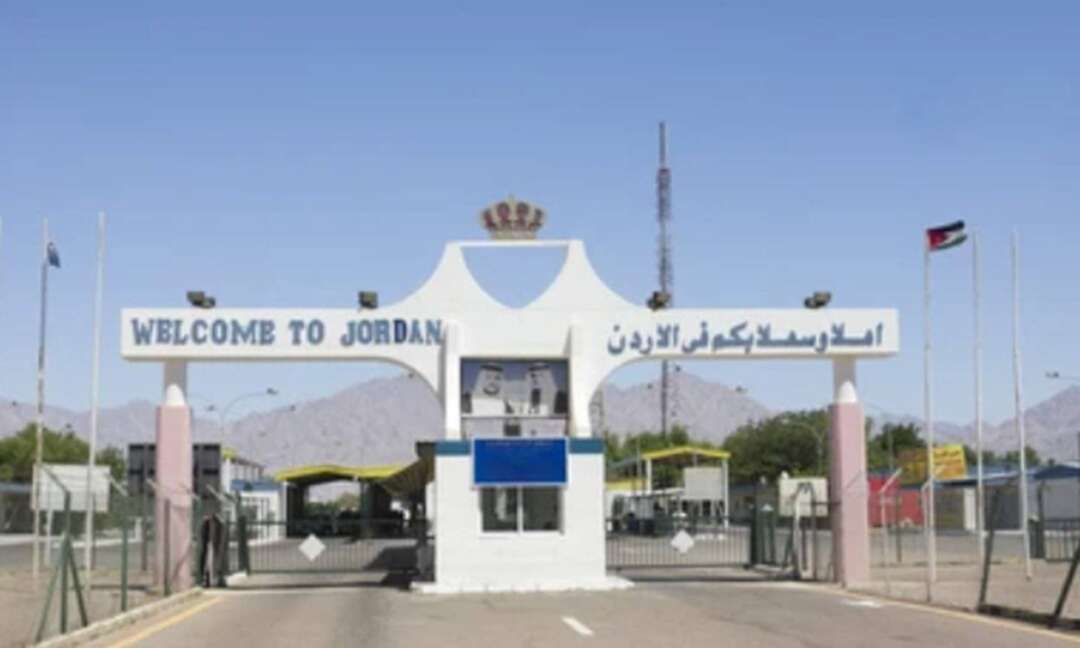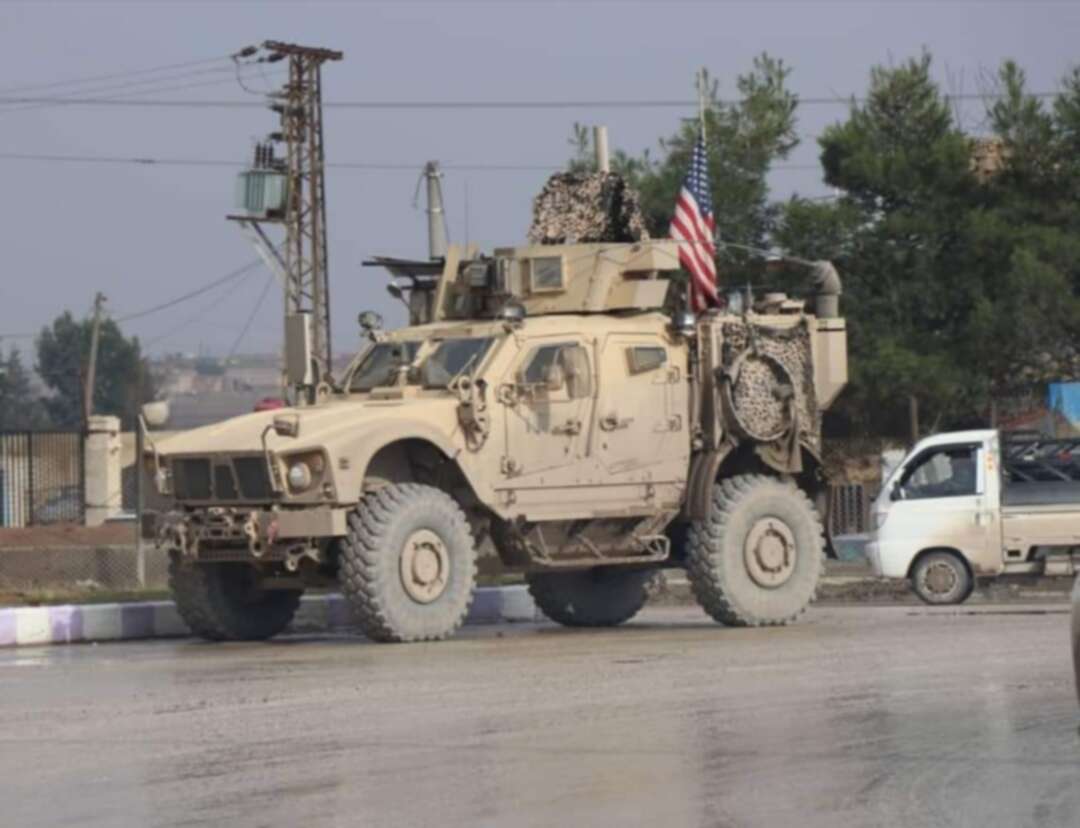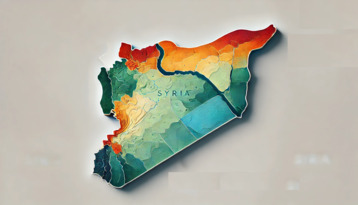-
Four killed as Jordanian army thwarts drug smuggling attempt from Syria

The Arabnews reported, the Jordanian army announced it had killed four people who attempted to smuggle “large amounts” of drugs into the country from Syria.
A source from the Jordanian Armed Forces said that troops on Jordan’s eastern borders with Syria opened fire on people who attempted to infiltrate the kingdom, killing four of them and injuring others.
The source said that the infiltrators were forced to retreat into Syrian territory.
The source told Arab News: “After inspecting the area, 181 palm-sized sheets of hashish, 637,000 Captagon narcotic pills, and 39,600 tramadol pills were found and handed over to the concerned authorities."

The Syrian Observatory for Human Rights in London said that six people were injured in the operation with some of them in a critical condition.
It said that one of those killed by the Jordanian army was the leader of a group that works in the narcotics industry in southern Syria and had “strong” ties with Lebanon’s Shiite Hezbollah.
Jordan's army kills 27 drug smugglers trying to infiltrate border from Syria
The operation on Sunday was the latest since Jordan announced a crackdown on drug smuggling from Syria and a change in rules of engagement to curb what it described as a “dramatic increase” in drug trafficking from its neighbor.
Jordan has warned that Syria was becoming a narco-state, posing cross-border threats to Jordan, the region, and the rest of the world.
The JAF has recently said that a total of 361 smuggling attempts from Syria were foiled in 2021, leading to the seizure of about 15.5 million pills of narcotics of different types.
US authorities return billionaire’s looted artifacts to Jordan
It foiled more than 130 smuggling attempts from Syria in 2020 and seized about 132 million Captagon pills and more than 15,000 sheets of hashish.
Describing the figures as “dramatically high,” a military source, who requested anonymity, told Arab News that “Illicit drug cultivation and manufacture has become a growing industry in Syria.”
According to the Syrian news website Enab Baladi, drug smuggling operations are most active in the southern regions of Daraa and Al-Suwayda.
Jordan witnesses increase in drug smuggling attempts from Syria
The news website quoted sources as saying, most of the smuggling routes are controlled by armed Bedouin tribes that have affiliations inside Jordan.
Experts say the strong presence of the militant organization Hezbollah in Syria and the expansion of its drug trafficking operations are the main reasons for the war-torn country becoming a narco-state and for the increase of drug smuggling into Jordan, Arab Gulf states, and Europe.
In recent remarks to Arab News, Fayez Dweiri, a retired major general and military analyst, said Hezbollah had resorted to the narcotics trade to secure funding after the US sanctions on Iran.
He said: “There is an established illicit drugs industry for Hezbollah in Beirut’s Dahieh Al-Janubiya and in the Shiite stronghold of Baalbek."
Dweiri said that Hezbollah “has relocated some of its drug factories to Aleppo and other Syrian regime-controlled regions."
He said: “The US sanctions on Iran have hit Hezbollah hard, obliging Tehran’s most funded proxy to look for other sources of revenues."
Lebanon seizes nearly nine million Captagon tablets in fake oranges
According to a report by the Washington Institute for Near East Policy, Hezbollah has significantly expanded and institutionalized its drug trafficking enterprises, which now generate more money than its other funding streams.
The think tank said that Hezbollah’s global narcotics industry began in Lebanon’s Bekaa Valley in the 1970s, using well-established smuggling routes across the Israel-Lebanon border.
Source: arabnews
You May Also Like
Popular Posts
Caricature
BENEFIT Sponsors Gulf Uni...
- April 17, 2025
BENEFIT, the Kingdom’s innovator and leading company in Fintech and electronic financial transactions service, has announced its sponsorship of the “Innovation and Sustainable Technology Solutions Competition (GU - IST Solutions), hosted by Gulf University at its main campus.
This strategic sponsorship reflects BENEFIT’s active role in advancing technological innovation and fostering sustainable solutions to future challenges. It also seeks to empower Bahraini youth by enhancing their skills, capabilities, and competitiveness in innovation and solution development—contributing meaningfully to the broader goals of sustainable development across all sectors.
As part of BENEFIT’s active involvement in the competition, the company has announced that Hanan Abdulla Hasan, Senior Manager of Public Relations and Communication, will serve on the competition’s supervisory committee. Her upcoming participation reflects BENEFIT’s forward-looking commitment to championing academic and professional excellence.
Commenting on the occasion, Hanan Abdulla Hasan, Senior Manager of Public Relations and Communication at BENEFIT, said, “We are privileged to support this pioneering initiative, which aligns seamlessly with BENEFIT’s enduring commitment to fostering innovation and nurturing the potential of Bahrain’s youth. Our participation is rooted in a deep sense of social responsibility and a firm belief in the pivotal role of innovation in shaping a sustainable future. Through such platforms, we seek to empower the next generation with the knowledge, skills, and foresight required to develop impactful solutions that address future challenges, in line with the United Nations Sustainable Development Goals 2030.”
Dr. Aseel Al Ayash Dean of the College of Engineering in Gulf University commented, “We extend our sincere gratitude to BENEFIT for their generous sponsorship and support of the Innovation and Sustainable Technology Solutions Competition. This contribution plays an instrumental role in helping us achieve the strategic goals of this initiative, namely, cultivating a culture of innovation and sustainability, encouraging efforts that address the imperatives of sustainable development, and enhancing the practical and professional capabilities of our students and participants.”
The event will bring together a diverse spectrum of participants, including secondary school students, university undergraduates, engineers, industry professionals, entrepreneurs, academic researchers, and subject matter experts representing a wide range of disciplines.
The competition seeks to inspire participants to develop and present innovative, sustainable technologies aimed at addressing pressing environmental, social, and economic challenges. It encourages the formulation of business models that integrate advanced technological solutions with core principles of sustainability. Moreover, it serves as a platform for emerging leaders, entrepreneurs, and innovators to contribute to the advancement of the Sustainable Development Goals, promote the ethos of responsible technology, and demonstrate its transformative potential across various sectors.
Attendees will have the opportunity to view a series of project presentations submitted by participants, covering diverse areas such as eco-friendly product design, smart and sustainable innovations, renewable energy technologies, water conservation and management, waste minimisation and recycling, green architectural solutions, and sustainable transportation systems. Outstanding projects will be formally recognised and awarded at the conclusion of the event.
opinion
Report
ads
Newsletter
Subscribe to our mailing list to get the new updates!






















